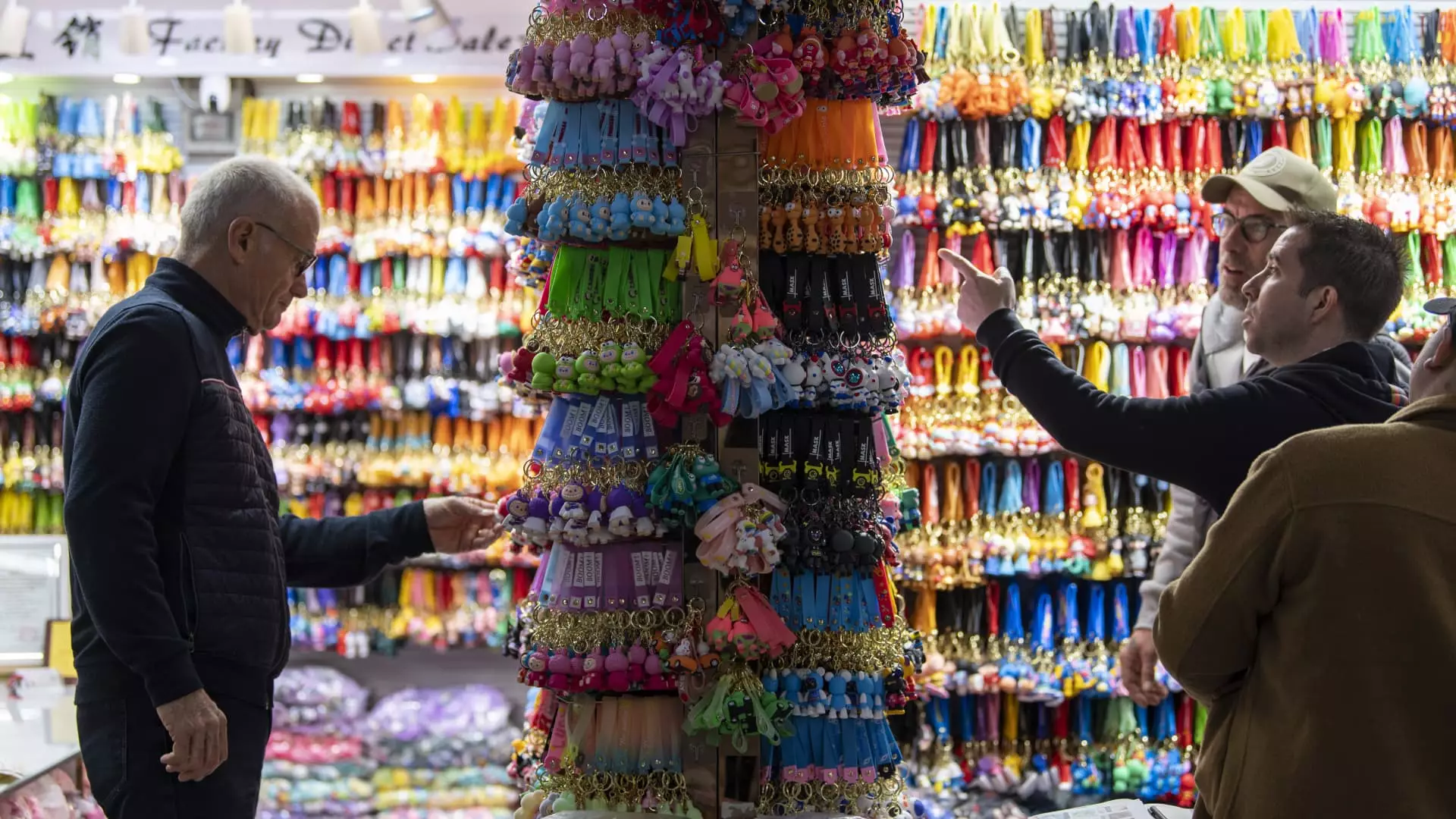It’s hard to ignore the escalating trend of Christmas creep—the annual ritual where holiday merchandise appears on shelves earlier and earlier. Retailers are eager to get an early start on one of the most lucrative shopping seasons of the year. Yet this year, an unexpected Grinch might be lurking: tariffs. The implications of these tariffs on imports from China could profoundly affect not just the retail landscape but also the consumer experience during the holiday season. If nothing changes, we might witness a festive season that’s devoid of some beloved products and holiday essentials.
Tariff Tensions: The Unforeseen Consequence
The abrupt announcement of sweeping tariffs by President Trump in early April sent shockwaves through the retail industry, with an initial 34% tariff on Chinese goods, later escalating to a staggering 145%. This realpolitik creates a climate of uncertainty affecting U.S. retailers’ relationship with Chinese suppliers. Initially, many retailers opted to halt orders, fearing that continuing business would lead to steep financial losses. Cameron Johnson, a senior partner at consulting firm Tidalwave Solutions, highlights the urgency of resuming production in order to meet crucial deadlines. The simple truth is that if retailers don’t adapt quickly, they risk entering the holiday season woefully unprepared.
The Ripple Effect of Disruption
This situation spirals beyond mere purchasing; it deeply affects entire supply chains. A factory that produces spoons might be idle, impacting the companies that provide raw materials like steel and iron ore. Should these supply chains grind to a halt, resuming operations becomes a Herculean task even if a trade agreement is finally reached. Businesses like Agilian Technology simplify this predicament: product manufacturing takes months, and delays in placing orders can have far-reaching implications across an extended timeline. It’s disenchanting to think about how tariffs have transformed simple holiday preparations into complex logistical puzzles.
The Perils of Stockpiling
As many retailers began to stockpile inventory to mitigate the impact of these tariffs, their efforts could soon backfire. According to Goldman Sachs, the current climate indicates that while frontloading orders initially resulted in a temporary spike in imports from China, that act has diminished significantly. Reports have indicated a 14-fold increase in canceled shipments in recent weeks, revealing how companies are feeling pinched by uncertainty on all sides. It’s as if America’s festive spirit is shackled by red tape and shipping woes—creating a perfect storm that could severely limit choices for consumers.
Waiting for a Trade Miracle
Amidst all this turmoil, some U.S. buyers have chosen to adopt a wait-and-see approach when it comes to resuming international shipments. It’s a gamble; they hope that potential tariff reductions might ease the strain on their pockets. However, that strategy has its pitfalls. According to experts, waiting could lead to bare store shelves. While some factories in China have resumed production due to clearance from major retailers like Walmart and Target, this doesn’t guarantee that goods will arrive in time for critical shopping days like Black Friday or the Christmas rush.
Anticipating Inflationary Pressures
Even if tariffs are eventually lifted or mitigated, the damage may already be done. Upstream costs are expected to rise—transportation, logistics, and production expenses could skyrocket as demand surges. With several retailers likely rushing to fulfill orders simultaneously, this predicament could push manufacturers into a corner where they might struggle to meet collective demand without inflating prices. The promise of an affordable holiday season could turn into a painful financial burden for consumers.
The Retailer’s Dilemma: Profit vs. Tradition
It’s not merely about the economy; it’s also about tradition and shared experiences. The joy of browsing through gleeful displays of festive merchandise is at risk, and the gripping fear of bare shelves could make for a less-than-jolly season. Certain sectors, especially those reliant heavily on imports from China, may not be prepared to meet holiday needs, further straining the expectations of consumers who anticipate the traditional holiday bliss. It’s alarming that something as simple as holiday shopping might soon become a difficult task steeped in logistical stresses and inflated prices, making the overall experience less enjoyable.
As we approach the holiday season, it’s essential to consider the economic realities that overshadow our festive cheer. If tariffs remain in place and supply chains are disrupted, this once joyous time of year could morph into one marked by scarcity and inflated prices—ultimately diminishing what should be a time of celebration and community.

